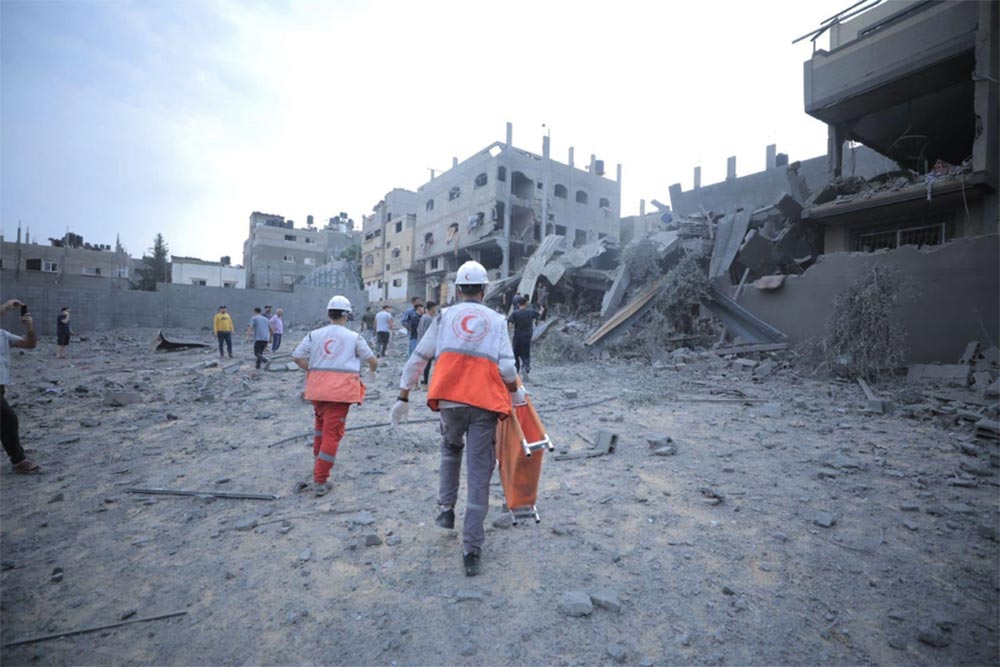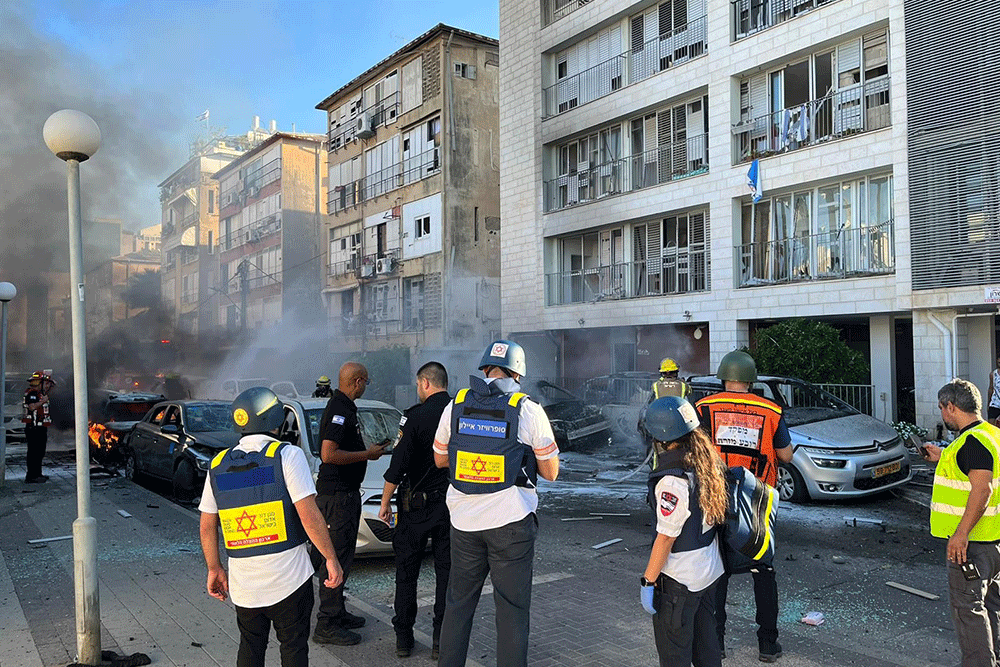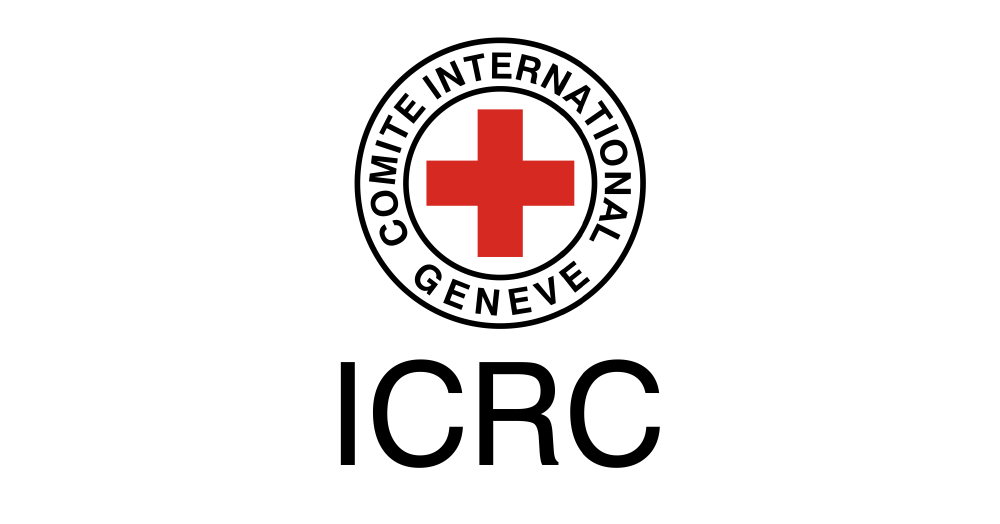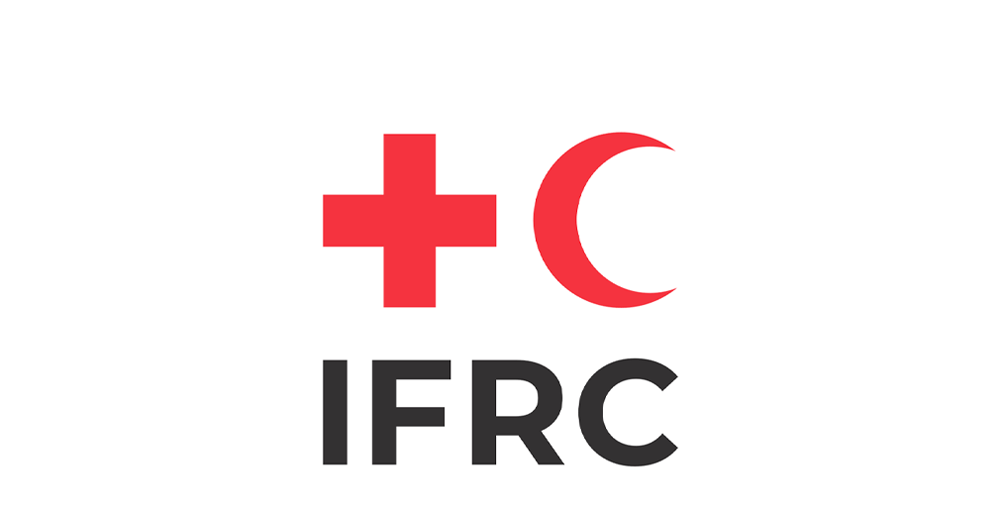An update: Israel and the Occupied Palestinian Territories
Update
Israel and the Occupied Palestinian Territories


Australian Red Cross lends its full weight to the Joint Statement from Jagan Chapagain, Secretary General of the International Federation of the Red Cross and Red Crescent Societies (IFRC) and Robert Mardini, Director General of the International Committee of the Red Cross (ICRC) on the escalation of hostilities in Israel and Gaza.
The needs are staggering and will only continue to increase if the hostilities persist. We call on all parties to exercise restraint, to abide by their obligations under international humanitarian law, and to protect civilians – which must remain at the core of everything we do.
What is Australian Red Cross doing to help?
Australian Red Cross has channelled funding from partners to the International Committee of the Red Cross (ICRC) and the International Federation of Red Cross and Red Crescent (IFRC) to fund the humanitarian response on the ground. This has included deploying medical specialists to support hospital operations providing urgent medical care to the wounded and mobilising relief supplies to Gaza and the Occupied Territories.
Australia Red Cross also received a grant from the Australian Government which has been channelled directly into the IFRC Emergency Appeal to further support their work on the ground in Gaza and the Occupied Territories.
How can Australian Red Cross help
Restoring Family Links
In Australia, our Restoring Family Links service is available for people who have lost contact with loved ones in Israel or the Occupied Palestinian Territories. Call 1800 875 199 9am–5pm (AEDT) or email tracing@redcross.org.au.
If your loved one is an Australian citizen, you can also contact the DFAT Consular Emergency hotline on 1300 555 135 for support and advice.
Emergency relief support
People who have recently arrived in Australia from Israel or the Occupied Palestinian Territories may be eligible for support including emergency financial assistance payments and casework to meet their basic needs. To be eligible, people must be seeking asylum, hold a temporary visa or have an uncertain visa status.
Looking after yourself and supporting others
In our decades of supporting communities to recover or cope with distress, we are strongly aware of the impact conflicts have on friends, families and communities.
People and especially children can feel more vulnerable, worried or scared as a result of these events. Therefore, we have created a number of resources to help you look after yourself and support others:
Our ‘after a distressing event has happened’ guide is designed to support people who might be feeling vulnerable, worried or scared as a result of the conflict. It is available in Arabic, Hebrew, English and a range of other languages.
Our ‘supporting your community’ guide provides an introduction to psychosocial support and helpful tips on managing sleep, controlled breathing and the impacts of trauma. It is available in Arabic and English and a range of other languages.
Other helpful resources and services
Witness to War
Provided by the Forum of Australian Services to Survivors of Torture and Trauma (FASSTT), Witness to War is a free, confidential, multilingual telephone hotline for people in Australia affected by overseas conflicts. When you call Witness to War, bicultural support workers and mental health practitioners will listen to your concerns, provide information about available support and help you connect with services to assist you and your family. Witness to War staff can talk to you in Arabic, Hebrew, Dari, Ukrainian and English, and in other languages through an interpreter. Free call: 1800 845 198
How do you talk to children about war?
This one-page guide developed by the IFRC Psychosocial Centre can be used by parents and caregivers with children directly affected by conflict and for children who may have friends in conflict settings. It can also be used as a guide to help parents and caregivers support and care for children who may be struggling to find explanations after watching disturbing images on tv or on social media.
Where can I donate?

If you would like your funds to be directed to humanitarian activities taking place in Israel and the Occupied Palestinian Territories, the ICRC is currently seeking donations for its humanitarian activities.
As the guardian and promoter of international humanitarian law (IHL), also known as the law of war, the ICRC works to alleviate the suffering of people impacted by situations of armed violence and conflict.
The ICRC, as a neutral and impartial humanitarian actor, has been in Israel and the Occupied Palestinian Territories since 1967 and remains on the ground responding to the escalation in violence and the growing humanitarian crisis.
For more information on the work of ICRC in Israel and the Occupied Palestinian Territories, and how you can help, we encourage you to visit the ICRC’s Israel and the Occupied Territories page for an overview of its humanitarian activities.

The International Federation of Red Cross and Red Crescent Societies (IFRC) is the world’s largest humanitarian network.
It supports local Red Cross and Red Crescent action in more than 190 countries, bringing together more than 16 million volunteers for the good of humanity.
As a complement to Magen David Adom and Palestine Red Crescent responses to the conflict, the IFRC is seeking donations to scale-up the response in neighbouring countries with the intention to assist more than 500,000 people.
If you would like your funds to be directed to humanitarian activities taking place in neighbouring countries, including Egypt and Lebanon, in response to the escalation of hostilities, the IFRC is currently seeking donations for its humanitarian activities.
For more information on the work of the IFRC in Israel, the Occupied Palestinian Territories and countries neighbouring the Occupied Palestinian Territories, we encourage you to visit the IFRC’s Middle East: Complex emergency crisis page for an overview of its planned humanitarian activities.
Please note, donations to the ICRC and the IFRC are not tax deductible.